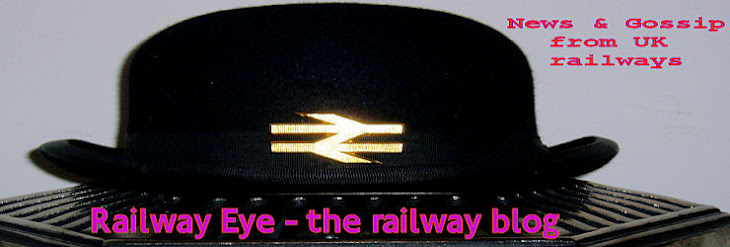This from the BBC...
Stones believed to be part of a giant arch that used to stand at Euston railway station are being retrieved from an east London waterway.
The stones are being lifted from the Prescott Channel, where they were used to fill a hole in the riverbed.
Aside from the implausible name of the channel this is all good news.
Hopefully Network Rail will now see fit to dredge up the Primrose Hill spandrels?
Monday, 18 May 2009
Euston Arch to be raised
Tuesday, 31 March 2009
We are not amused
Telegrammed by our Independent Expert
Vanished Victoriana - The mystery deepens.
Regular Eye readers may recall how, just before Christmas, Network Rail bulldozers mysteriously blitzed the splendid Victorian buildings of north London's Primrose Hill station on the eve of a campaign by local residents to get it reopened.
What happened to the splendid Victorian ironwork, worth thousands in the railwayana or architectural salvage markets?
Was it flogged down the pub?
Is it adorning someone's back garden?
Now the current issue of the local paper, the Camden New Journal, reports that local MP "Big Frank" Dobson is getting involved.
Dobbo is seeking more information about the debacle. Who authorised the demolition? Who in Transport for London was consulted? Why were local people, ignored? Where has all the heritage gone?
It's not just Dobbo and the locals who are seeking answers.
The incoming Tory government have got NR and its unaccountable ways in their gunsights.
Saturday, 17 January 2009
Going for a song
Mysteriouser and mysteriouser.
The heritage lobby are furious about Network Rail's razing of the historic North London Line station in December, a day after campaigners handed out leaflets urging the case for its reopening.
It is a re-run of what happened in 1988, when Wolverton residents were shocked to find their famous station, also on the former LNWR, with its historic refreshment rooms, was smashed to a pile of rubble overnight by BR.
The Wolverton spandrels found their way to BR's junkyard, "Collectors Corner" where they were bought for a few quid and saved for posterity by a north London collector who recognised them for their significance.
So where are the Primrose Hill spandrels now?






